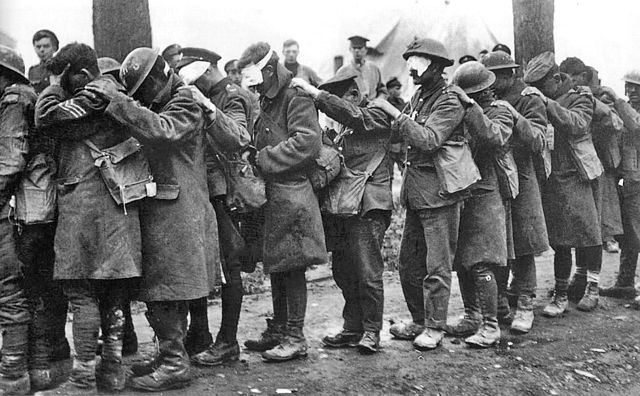Loading AI tools
禁止在國際衝突中使用生化武器的公約 来自维基百科,自由的百科全书
《禁止在戰爭中使用窒息性、毒性或其他氣體和細菌作戰方法的議定書》(法語:Protocole concernant la prohibition d'emploi à la guerre de gaz asphyxiants, toxiques ou similaires et de moyens bactériologiques; 英語:Protocol for the Prohibition of the Use in War of Asphyxiating, Poisonous or other Gases, and of Bacteriological Methods of Warfare),簡稱《日內瓦議定書》(法語:Protocole de Genève; 英語:Geneva Protocol),各締約國同意在戰爭中不使用窒息性、毒性或其他氣體,以及使用一切類似的液體、物體或器件,即化學武器與生物武器[3]。締約國於1925年6月17日在瑞士日內瓦簽署了該協議,於1928年2月8日開始生效。


日內瓦議定書的締約國有140個。[4]
| 年份 | 名稱 | 效果 |
|---|---|---|
| 1675 | 斯特拉斯堡協定 | 歷史上首件限制使用化學武器的國際協議 |
| 1874 | 布魯塞爾戰爭法和慣例公約 | 禁止使用毒藥與毒性武器(該約未生效) |
| 1899 | 1899年海牙第2宣言 | 摒棄使用旨在散佈窒息性或毒性氣體的彈藥 |
| 1907 | 1907年海牙第4公約 | 增訂禁止使用毒藥與毒性武器 |
| 1919 | 凡爾賽條約 | 禁止德國使用毒氣 |
| 1922 | 戰爭中使用潛艇和毒氣條約 | 因法國反對有關潛艇戰的條款而失敗 |
| 1925 | 日內瓦議定書 | 禁止在國際衝突中使用窒息性、毒性的氣體、液體、材料或裝置,以及細菌戰。 |
| 1972 | 禁止生物武器公約 | 首件國際生物武器裁軍條約,但無核查機制;後續議定書於2001年談判失敗 |
| 1993 | 禁止化學武器公約 | 全面禁止化學武器的開發、生產、儲存和使用,並規定銷毀期限 |
| 1998 | 國際刑事法院羅馬規約 | 在國際衝突中使用化學武器明定為戰爭罪;2010年修正案擴大禁止範圍含各國內戰 |
Seamless Wikipedia browsing. On steroids.
Every time you click a link to Wikipedia, Wiktionary or Wikiquote in your browser's search results, it will show the modern Wikiwand interface.
Wikiwand extension is a five stars, simple, with minimum permission required to keep your browsing private, safe and transparent.